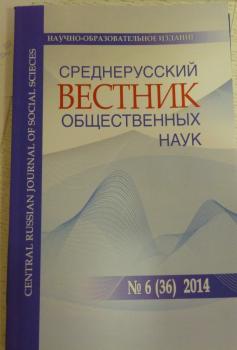Nowadays in the formulation of anti-corruption policy international organizations and governments of many countries are paying increasing attention to the possible approaches to the assessment of corruption risks. Risk assessment is often presented as one of the most effective preventive mechanisms to counter corruption, and as a way to ensure the compliance of developed anti- corruption measures to real corruption schemes in the country. However, there is no single methodology for a systematic assessment of corruption risks. Foreign experience in the fight against corruption demonstrates the need to identify potential "corruption-factors", the definition of government functions that are mostly at risk of corruption in a particular public authority. Carrying out such an analysis of corruption risks is necessary for the further development of anti-corruption legislation, establishment and implementation of the relevant anti-corruption strategy. The article notes that the study of approaches to risk assessment, development and implementation of the assessment methodology in recent years are of particular relevance in Russia.
risks of corruption, anti-corruption policy, public authorities, problem of anti-corruption, corruption factors
1. Vladimirov V.A., Vorob´ev Yu.L., Malinetskiy G.G. i dr. Upravlenie riskom. Risk, ustoychivoe razvitie, sinergetika. - M.: Nauka, 2000.
2. Duglas M. Risk kak sudebnyy mekhanizm. THESIS: teoriya i istoriya ekonomicheskikh i sotsial´nykh institutov i sistem. - 1994. − Vyp. 5. - S. 242-249.
3. Krui M. Osnovy risk-menedzhmenta. - M.: Yurayt, 2011.
4. Luman N. Ponyatiya riska. THESIS: teoriya i istoriya ekonomicheskikh i sotsial´nykh institutov i sistem. - 1994. − Vyp. 5. - S. 135-160.
5. Makhtaev M.Sh. Kriminalisticheskoe i kriminologicheskoe preduprezhdenie prestupleniy v sisteme preduprezhdeniya prestupnosti. Ikh sootnoshenie. Kriminalisticheskie chteniya, posvyashchennye 100-letiyu so dnya rozhdeniya professora B.I. Shevchenko. Tezisy vystupleniy. − M.: MAKS-Press, 2004.
6. Potomskiy V.V. Tipologiya osnovnykh antikorruptsionnykh strategiy gosudarstva. Vestnik gosudarstvennogo i munitsipal´nogo upravleniya. - 2016. - № 3. - S. 32-35.
7. Saymon G. Pogovorki upravleniya. Klassiki teorii gosudarstvennogo upravleniya: Amerikanskaya shkola / Pod red. Dzh. Shafrittsa, A.Khayda. - M., 2003.
8. Cheplyaev V.L., Bondarenko O.I., Padalka E.A. Razrabotka metodiki normirovaniya gosudarstvennykh uslug. Vlast´. − 2012. - № 12. − S. 92-95
9. Shediy M.V. Korruptsiya kak sotsial´noe yavlenie: teoretiko-metodologicheskie aspekty issledovaniya : monografiya. - Orel: Izd-vo ORAGS, 2011.
10. Shediy M.V. Tsennosti kak faktor razvitiya korporativnoy kul´tury gosudarstvennoy sluzhby: avtoref. dis.... kand. sotsiol. nauk. - Kursk, 2004.
11. Aven T. On How to Approach Risk and Uncertainty to Support Decision-Making. Risk Management. 2004. -Vol. 6(4). -P. 27-39.
12. Clarke R. Situational crime prevention: successful case studies. Albany. Harrow and Heston.1997.
13. The Situational Analysis of Crime and Deviance Authors: Christopher Birkbeck and Gary LaFree//Reviewed works. 1993. Vol.19. -P. 113-137.





